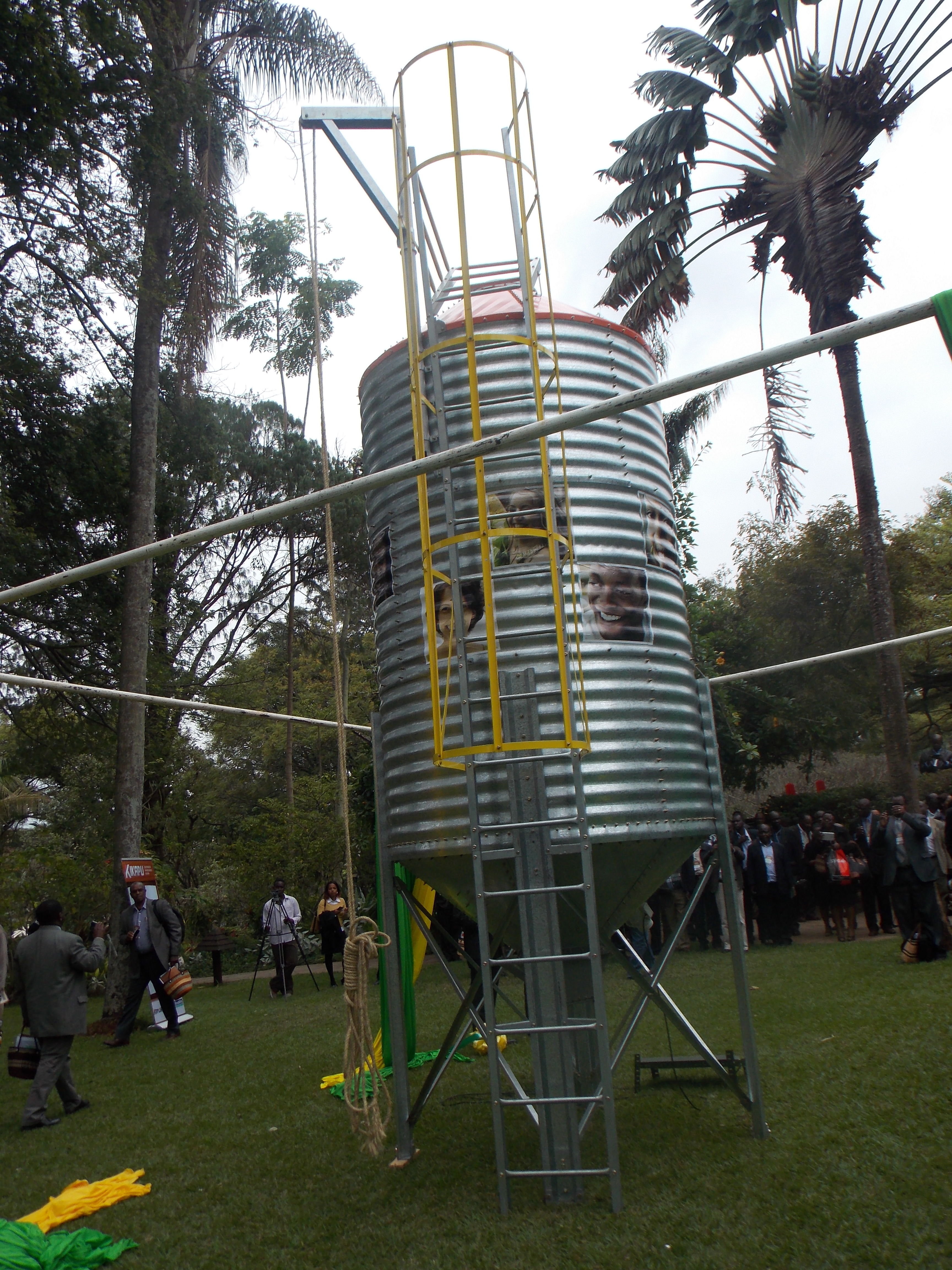
Traditionally silos in the country have been used by large agricultural companies and have been beyond reach for ordinary farmers due to the cost involved in buying and maintaining them. But a Brazilian farm equipment company, Kepler and Weber aware of the extent of lost food due to archaic storage means has come up with low cost easier to maintain silo dubbed Kikapu and targeted specifically for smallholder farmers.
“We have for long specialized in designing and manufacturing of huge agribusiness silos that are designed for the commercial farmers and state corporations,” noted Olivier Colas from Kepler and Weber. However two years ago while on his normal visit in East Africa, he met Marcos Brandalise the CEO of BrazAfric and was given a new challenge. “Due to his huge experience with farmers in East Africa, he advised me to help in developing a product that would help save the losses the grain farmers are experiencing due to poor storage facilities.
The facility was to be innovative in order to operate even in areas where power was not available, be efficient but still remain simple. This was the inspiration behind the launch of the first ever solar powered mini silo in Africa. The mini silo introduction is aimed at ensuring that farming especially among the cereal farmers is a profitable venture which one can derive pride in. “The over 60 percent losses in grains that farmers experience in Kenya makes farming a very painful experience because most of the farmers never realize any proceeds from their ventures.
The end result is that the youth cannot even pride in taking into agribusiness ventures,” explained Olivier Colas.
According to Olivier, such innovative ideas like the solar powered mini silo and other simple mechanization techniques in agriculture are the only way to make farming trendy entice millions of otherwise unemployed youth who find nothing attractive in farming.
In Kenya alone, official statistics indicate that 60 percent of the over 14 million unemployed people in the country are youth and according to Olivier, agriculture has the potential to create massive job opportunities. “Our youth can only be attracted into agribusiness by innovative and trendy innovations which make agribusiness a sexy affair. The youth like trendy, fashionable and above all profitable ventures which agricultural mechanization can help create,” explained Olivier.
The initial introduction and success of the solar powered mini silo in Brazil has given a leeway for its introduction in East Africa. Kikapu is easy to assemble and comes with an installation manual although the Brazafric team helps in the initial installation. It is a flexible equipment which takes into consideration the fact that there is uneven distribution of electricity in most African states and therefore can either be powered by solar or battery. The size capacity for the kikapu ranges from 2.5 tonnes to 6 tonnes and most the component are made of galvanized steel which is rust resistant. It is installed with a fan at the base which when powered, commences the aeration process.

“We have designed the Kikapu to keep the grains safe from any insects and other impurities like fungi through the aeration process with hot temperature air being blown inside. Under this temperature, the eggs of any insects and other micro organisms can rarely survive hence ensuring that the way a farmer stored his produce is the same way and condition he/she will find them at the time of collecting for either selling or consumption,” noted Olivier. He further noted that their core value is always to develop products that are relevant to the end user and therefore efficiency and effectiveness will always comes first.
Kenya produces about 4 million tonnes of maize annually with about 3 million of this maize coming from small holder farmers. Olivier noted that at the end of 90 days, 60 percent of these produce from smallholder farmers is estimated to go to waste and therefore the adoption of kikapu will help curb these losses. The retail price of Kikapu is estimated to range from Sh200,000-400,000 and the Kepler and Weber expects to 12000 units in the first year.
















Comments powered by CComment